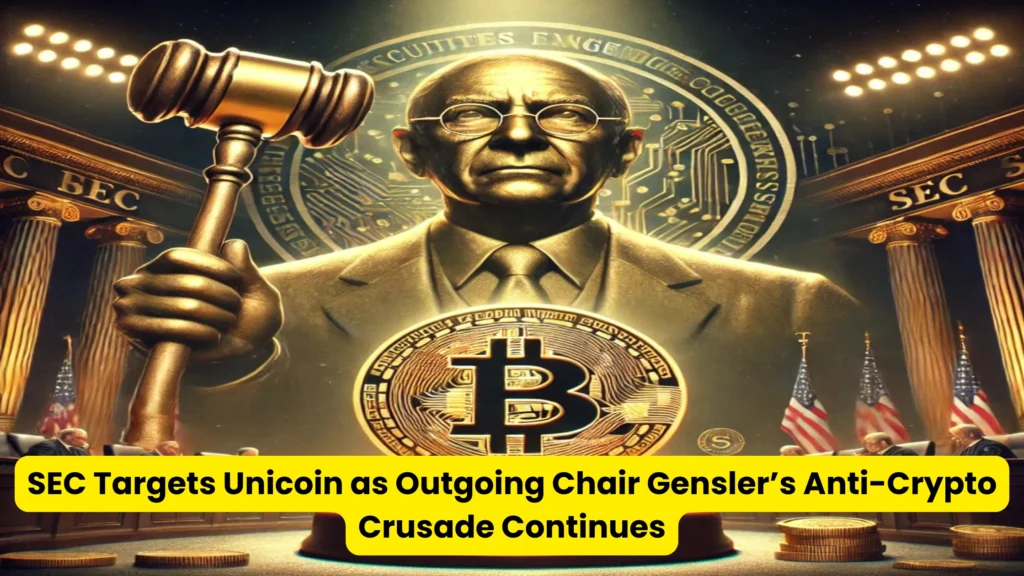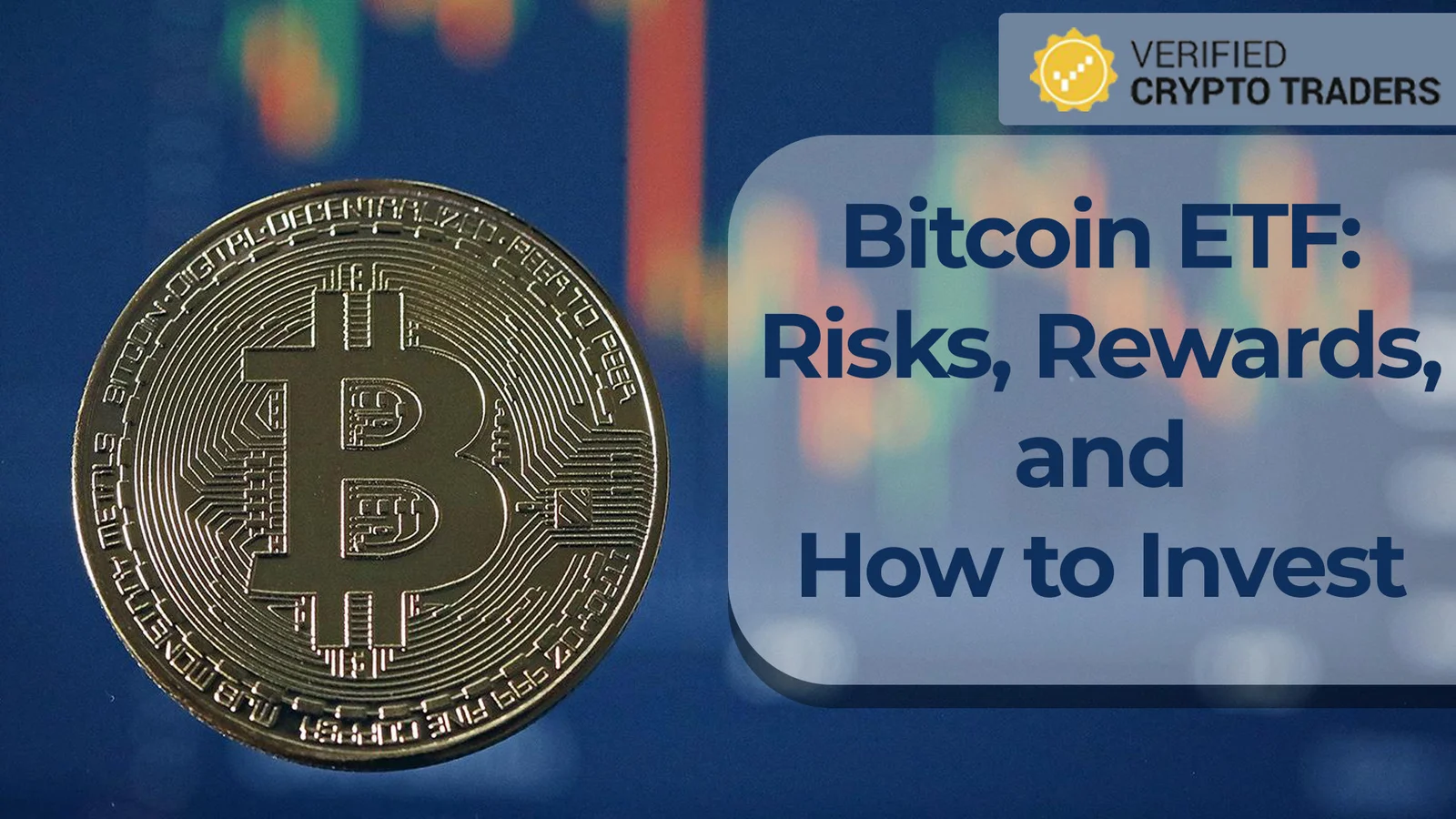
Table of Contents
The U.S. Securities and Exchange Commission (SEC) has sent a so-called “Wells Notice” to the Unicoin company, indicating that it intends to sue the manufacturer of cryptocurrencies for fraud and the sale of securities without a license. This development points to the outgoing acting SEC Chairman Gary Gensler‘s cracking down on enforcement actions from the cryptocurrency industry, which remains a high-octane affair as his term draws closer.
Claims Made by SEC Against Unicoin
Indeed, the Wells Notice, which the SEC served on Unicoin, demonstrates that the agency is planning to take enforcement action against the company at the moment. The charges relate to fraud, and selling of securities without registration an offence the SEC has relentlessly pursued under Gensler. Unicoin has 15 days from receiving the notice to reply, though, after December 24, the SEC may proceed to file charges.
Unicoin’s Security Breach
A couple of months later in August 2024, Unicoin detected unauthorized access to its corporate G-Suite services including concerns of data breach. The management of the firm said that at that moment, its investigation did not reveal the theft of any cash or crypto assets. But it may have raised regulatory concerns this year, especially if the SEC intensifies on cybersecurity and protection of investors.
The Crypto Enforcement and Gensler’s Tenure
Gary Gensler, chairing the SEC since 2021 has been quite forceful in regulating the cryptocurrencies. He has frequently referred to the crypto market as the ‘Wild West’ of the financial markets while stressing the importance of tight scrutiny to guard the sector against rip-offs and dirty tricks. Working for the SEC, he has overseen several enforcement matters against cryptocurrencies for unregistered securities and fraud.
Analysis of the Consequences of Gensler’s Resignation
Gensler is expected to resign from office on January 20, 2025, at the beginning of President-elect Donald Trump’s administration. It has left a question about the further development of the interaction of the SEC and cryptocurrencies in the USA. Certain industry participants expect changes helping cryptocurrencies as news emerged that Trump reportedly plans to appoint Paul Atkins who supports the relaxation of crypto regulation as the new chair of the SEC.
Industry response and political development
Currently, the crypto industry has grown an interest in political lobbying, with the pockets opening the wallet to finance political regulation policies. Particularly, Coinbase’s legal officer Paul Grewal openly called on the president-elect Trump to fire Gensler and appoint a more friendly to the crypto industry person referring to the enforcement of the law as his major.
Also, the emergence of some political committees funded at least in part by the crypto industry, like Fairshake, reveals the attempts of the latter to influence politics in its favour. Such changes suggest that the stakeholders of the crypto market are actively trying to influence the regulatory framework that should encourage cryptocurrency advancements but also define legal requirements to follow.
Future Outlook
The SEC’s planned lawsuit against Unicoin is a good reminder that regulators are active in the US and their compliance rules should stay a top concern for any crypto biz. There may, of course, be differences between those_invoke and other potential new leaders at the SEC, and it is not clear whether this signals a more radical change in approach or ossification above and beyond the reversal of current policies, how quickly they are rolled out.
Any firm in the crypto industry should proceed to operate under the current laws and ensure that the company has adequate safeguard mechanisms that can prevent enforcement measures.
For the industry right now, the key to success hinges on the relationships that exist and that may develop between the regulators and the entities in the blockchain space. These engagements are crucial to achieving the objectives of investor protection and market integrity, on the one hand, and innovation within the fast-growing digital asset environment on the other hand.
Industry Reactions and Implications
Gary Gensler’s regulatory model has not been popular with the crypto industry since it lowers innovation and creates more risks. Managers of similar industries are now also keenly observing how Unicoin will address the SEC. Depending on the verdict of the suit, it can be of expensive significance to future regulation enforcement as the agency moves to the next administration.
What’s Next: Crypto Regulation?
While Gensler is set to step down at the start of the year, it is unclear what the course of crypto regulation will be. Despite that, recent developments such as the anticipation of a new, less aggressive SEC chair have given the industry something to cheer about. However, the SEC’s action against Unicoin serves as a clear message: Overall, the agency still represents its determination to pursue regulatory enforcement against crypto companies and firms, irrespective of the changes in presiding authorities.
What the Unicoin Case Means for Crypto’s Future
The SEC lawsuit against Unicoin should therefore be a wake-up call for the entire crypto industry despite the current attempts to garner more regulatory attention. Though such a change may herald a new era in enforcement by the SEC, companies must enforce compliance to prevent similar actions in the future. The Unicoin case, therefore, shows how Gensler’s legacy, as well as how there remain several regulatory challenges for the cryptocurrency market ahead of it.


